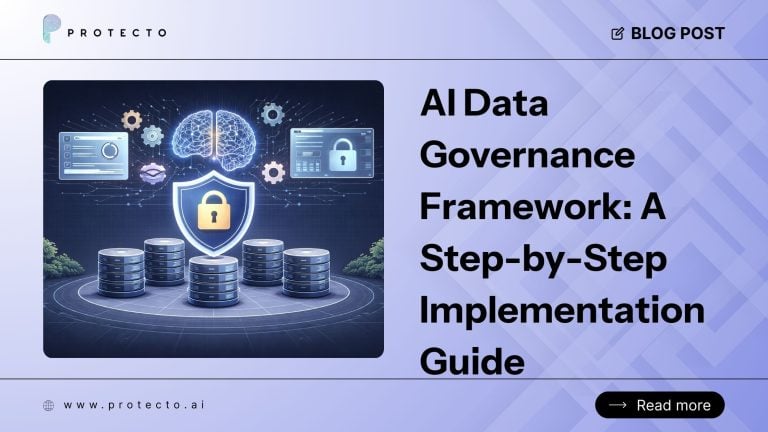LangChain Unveils Stable Version 0.1.0 with Enhanced Functionality and Documentation
In a significant development for developers and enthusiasts in the Language Model (LLM) applications field, LangChain has officially released its stable version, 0.1.0. The release signifies a milestone for the platform, offering enhanced functionality, improved documentation, and a commitment to systematic and secure evolution.
LangChain’s Evolution and Architectural Changes
Having existed for over a year, LangChain has undergone substantial transformations to emerge as the default framework for building LLM applications. Notably, the recent release introduces two significant architectural changes:
- Separation of LangChain-Core: LangChain-Core now houses the main abstractions, interfaces, and core functionality. With a stable version and a strict versioning policy, it ensures stability and reliability.
- Separation of Partner Packages: Partner packages have been divided into LangChain-Community or standalone partner packages, streamlining the overall project organization.
New Versioning Standard and Improved Stability
LangChain has adopted a new versioning standard starting with the 0.1.0 release to address previous challenges. The new standard includes:
- Minor version bumps for breaking changes to the public API.
- Patch version bumps for bug fixes or new features.
This approach aims to provide clear communication about breaking changes, allowing developers to update confidently. It also facilitates the efficient deprecation and removal of old code, reducing system bloat.
Focus on Third-Party Integrations
LangChain boasts nearly 700 integrations, making it a preferred choice for developers due to its ease of use with various stacks. Recognizing the importance of a robust integration ecosystem, LangChain has improved the robustness, stability, scalability, and overall developer experience around integrations.
Recent changes include:
- Centralizing Integration-Specific Work: Third-party integrations are now part of LangChain-Community, allowing centralized management.
- Individual Integration Packages: About ten packages, including OpenAI, Google, and Mistral, have been separated into their standalone packages. This ensures better dependency management and versioning.
Observability and Debugging with LangSmith
To enhance the observability of LangChain applications, the team has introduced LangSmith, offering a best-in-class debugging experience. It provides detailed logs of each step, inputs, outputs, and execution times, contributing to a seamless debugging process.
LangChain Expression Language (LCEL) and Composability
LangChain has heavily invested in LangChain Expression Language (LCEL), enabling the composition of arbitrary sequences and providing benefits similar to data orchestration tools for data engineering pipelines. LCEL facilitates customization and seamless modification of chains without extensive code changes.
Streaming, Output Parsing, Retrieval, and Agents
LangChain addresses the need for improved user experience through streaming, output parsing, advanced retrieval strategies, and agentic workloads. The platform supports various methods, including output parsers, retrieval functionalities, and reasoning capabilities for agents.
What to Expect in LangChain 0.2
Despite the recent release of LangChain 0.1.0, the team is already considering version 0.2. Plans include:
- Rewriting legacy chains in LCEL.
- Introducing new chain and agent types.
- Enhancing production ingestion capabilities.
- Removing old and unused functionality.
Importantly, LangChain commits to maintaining version 0.1 as a stable branch for at least three months after the 0.2 release, ensuring continued support for existing users.
LangChain’s journey towards stability and innovation continues, shaping the landscape for Language Model applications and providing developers with powerful tools for their projects.
LlamaIndex Unveils Query Pipelines for Streamlined and Versatile Data Query Orchestration
LlamaIndex, a prominent player in the AI landscape, has introduced Query Pipelines, a revolutionary declarative API designed to facilitate concise orchestration of query workflows over diverse datasets. The new feature empowers users to manage simple and complex query scenarios efficiently, including tasks such as RAG (Retrieval-Augmented Generation) and structured data extraction.
The Core of Query Pipelines: The QueryPipeline Abstraction
Central to the Query Pipelines is the QueryPipeline abstraction, a versatile component that integrates various LlamaIndex modules, including LLMs (Language Model Modules), prompts, query engines, retrievers, and even other QueryPipelines. It allows the creation of computational graphs, offering options for sequential chains or directed acyclic graphs (DAGs). With built-in callback support and native compatibility with observability partners, the QueryPipeline abstraction aims to enhance the ease of building LLM workflows.
Addressing Varied Query Scenarios
LlamaIndex recognizes the evolving needs of AI engineers developing customized orchestration flows for LLMs over the past year. Common patterns have emerged, such as RAG for unstructured data queries and text-to-SQL for structured data queries. Use cases like structured data extraction, prompt chaining, and interactions with external services have become more prevalent.
RAG, once perceived as a monolithic process, has become modular. Developers are encouraged to select modules that best suit their use cases, leading to innovative patterns like DSP (Dynamic Source Positioning), Rewrite-Retrieve-Read, and interleaving retrieval and generation multiple times.
Evolution of LlamaIndex and Query Pipelines
Before introducing Query Pipelines, LlamaIndex provided numerous guides and Llama Pack recipes, empowering users to set up various RAG pipelines. However, orchestration was left to the users’ discretion, necessitating the imperative arrangement of workflows by reading API guides.
The Query Pipeline introduces a declarative approach to query orchestration. Users can compose sequential chains or DAGs of any complexity more efficiently, reducing code complexity and enhancing readability. The benefits of Query Pipelines include expressiveness, excellent readability, end-to-end observability, potential future serializability, and caching capabilities.
Usage Patterns
Query Pipelines can be used in two main ways: as a sequential chain or as a complete DAG. Sequential chains involving linear pipelines are more straightforward and more concise. The QueryPipeline can also be employed in DAG-based workflows using LlamaIndex modules.
Supported Modules and Future Enhancements
The Query Pipeline currently supports a variety of LlamaIndex modules, including LLMs, prompts, query engines, retrievers, output parsers, postprocessors, and more. Users have the flexibility to define custom components and plug them seamlessly into the Query Pipeline.
Conclusion and Future Plans
LlamaIndex’s Query Pipelines mark a significant leap forward in query orchestration for LLM applications. The platform aims to continue its evolution by exploring future enhancements, including easy serializability, caching, and maintaining support for both sequential chains and DAGs.
To delve deeper into the capabilities and usage of Query Pipelines, users are encouraged to explore the comprehensive introduction guide and documentation provided by LlamaIndex. As the AI landscape continues to evolve, LlamaIndex remains at the forefront, providing developers with powerful tools for efficient and versatile query workflows.



